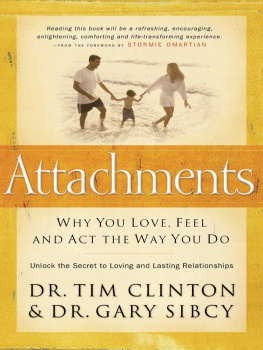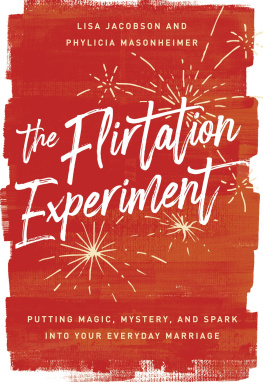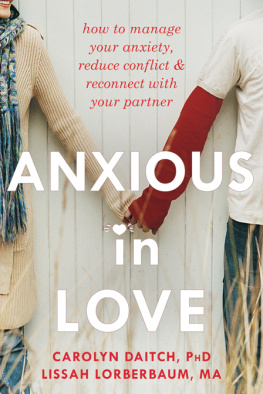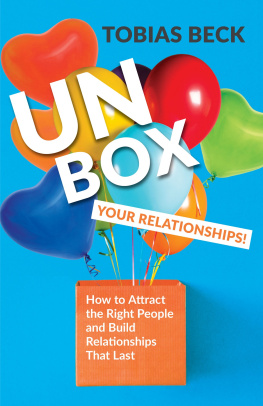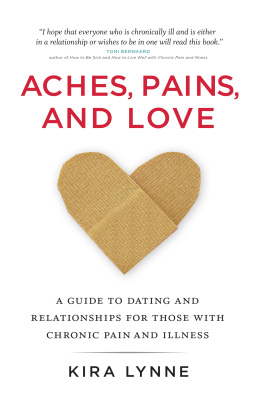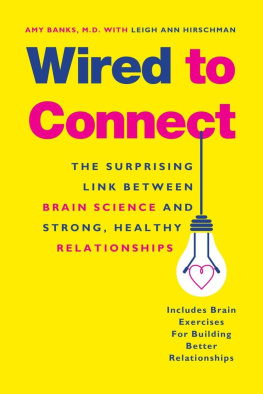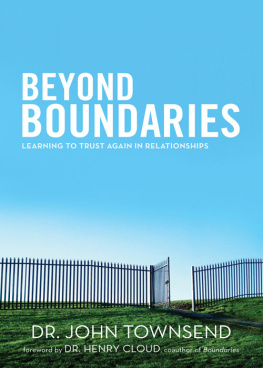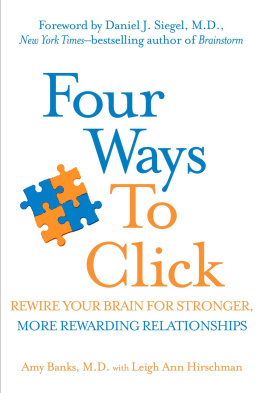Praise for Stop Being Lonely
A must-have in a world where technology is increasingly distancing us from others while it creates the illusion that it is doing just the opposite.
Anna Jedrziewski,Retailing Insight
I love this book and welcome its valuable exploration of an important topic. Loneliness is a modern-day affliction, and Kira Asatryan dives into the experience of loneliness with skill, sensitivity, and insight. The book flows beautifully through various inquiries, complemented with great questions and journal prompts at the end of each chapter. The content is honest and bold as well as compassionate. This is a refreshing and essential reading prescription for modern life.
Jackee Holder, coach and creative catalyst
Kira Asatryans book is a lifeline for people struggling to build and maintain meaningful relationships in our plugged-in, fast-paced society. At the height of the app revolution and with the proliferation of chat apps on smartphones and tablets, the ability to really connect with others remains critical to our personal well-being and social development. Far from being just your typical self-help book, Stop Being Lonely is a sociological inquiry into the nature of relationship building, providing educated advice on how to form lasting, meaningful relationships.
Rune Vejby, author of Texting in Sick: How Smartphones, Texting, and Social Media Are Changing Our Relationships
Stop Being Lonely is one of the most valuable books Ive ever read, and I read a lot. It addresses a problem so common we dont even notice that its impacting our lives. Kira Asatryan helps us see that loneliness can be destructive but that with knowledge and guidance it can be overcome. I recommend you get one copy for yourself and another for a friend or family member. Everyone needs to own a copy of this important book.
Jed Diamond, PhD, author of The Irritable Male Syndrome and The Enlightened Marriage
Kira Asatryan describes a hidden, insidious, debilitating plague of our time: loneliness. She helps us understand the cultural trends that give rise to it and the terrible toll it takes on our peace of mind. Most important, she shows the reader how to combat its damaging effects by following her simple steps to restore caring connections with loved ones. Her book is an absolute must-read for anyone wishing to deepen the quality of their relationships and their life in general.
Linda Bloom, LCSW, coauthor of 101 Things I Wish I Knew When I Got Married and Secrets of Great Marriages
Despite our 24/7 connectivity to friends, families, and coworkers, many of us experience a sense of isolation and loneliness because were not developing close relationships. Kira Asatryans new book guides us with practical advice and simple steps to build fulfilling, deep connections in all areas of our lives.
Christine Hassler, speaker, coach, and bestselling author of Expectation Hangover
Stop Being Lonely is an accessible, soulful, and wise book about making and deepening real connections with the people in your life, including yourself. While wide-ranging in its scope, the book is also beautifully practical and specific. Its topic is of central importance in any age but especially timely as we continue to navigate our ever-changing digital world. Highly recommended.
Susan Raeburn, PhD, clinical psychologist and coauthor of Creative Recovery: A Complete Addiction Treatment Program That Uses Your Natural Creativity
Loneliness is a big struggle for many. In her new book, Kira Asatryan provides us a simple yet brilliant fix.
Dr. Charles J. Sophy, medical director for the County of Los Angeles Department of Children and Family Services and author of Side by Side: The Revolutionary Mother-Daughter Program for Conflict-Free Communication
Kira Asatryan takes you on a step-by-step journey back to where you were meant to be: to the feeling of closeness.
Dr. Wendy Walsh, CNNs human behavior expert and former cohost of The Doctors



| New World Library 14 Pamaron Way Novato, California 94949 |
Copyright 2016 by Kira Asatryan
All rights reserved. This book may not be reproduced in whole or in part, stored in a retrieval system, or transmitted in any form or by any means electronic, mechanical, or other without written permission from the publisher, except by a reviewer, who may quote brief passages in a review.
The material in this book is intended for education. No expressed or implied guarantee of the effects of the use of the recommendations can be given or liability taken. Some names have been changed to protect the privacy of individuals.
Text design by Tona Pearce Myers
Library of Congress Cataloging-in-Publication Data
Names: Asatryan, Kira, [DATE] author.
Title: Stop being lonely : three simple steps to developing close friendships and deep relationships / Kira Asatryan.
Description: Novato, California : New World Library, [2016] | Includes bibliographical references and index.
Identifiers: LCCN 2015041153 | ISBN 9781608683802 (pbk. : alk. paper) |
ISBN 9781608683819 (ebook)
Subjects: LCSH: Friendship. | Interpersonal relations. | Loneliness.
Classification: LCC BF575.F66 A83 2016 | DDC 158.2dc23
LC record available at http://lccn.loc.gov/2015041153
First printing, February 2016
ISBN 978-1-60868-380-2
Printed in Canada on 100% postconsumer-waste recycled paper

| New World Library is proud to be a Gold Certified Environmentally Responsible Publisher. Publisher certification awarded by Green Press Initiative. www.greenpressinitiative.org |
10 9 8 7 6 5 4 3 2 1
For Kaexjan, for being my kaexjan.
For Eric, for your wisdom and your typing fingers.
And for Ann, as always.
Contents
F or as long as humans have gathered, there have always been those who have found themselves a little on the outside. Their peers may have perceived them as different, or they may have perceived themselves as so. Relationships may have been harder for them to find, and a struggle to keep. For as long as people have attempted not to be alone, there have been those who have still been lonely.
Historically, loneliness was a result of rejection by the tribe. You had to cross some unspoken line or break a taboo to be shunned. You had to set off alarm bells in some way. There was a reason for ones isolation from the group and resulting loneliness, and it was a somewhat rare occurrence. Loneliness was the exception, not the rule.
Today, in the Western developed world, loneliness is becoming more the rule than the exception. Nearly everyone struggles with loneliness at some point; youd be hard-pressed to find anyone who hasnt suffered at least a short stint of painful loneliness. Youd hardly know it, though, since loneliness no longer looks the way it once did.
Loneliness is no longer characterized by rejection from the group or an inability to find a mate. Today, isolation is often experienced by highly functional people who have no apparent cause for feeling separate. This type of loneliness is hard to pinpoint, even by those in the throes of it. Its a new kind of loneliness, one that is not typified by a lack of people in our lives. Its an internal loneliness, a loneliness of the heart and mind.
Next page



